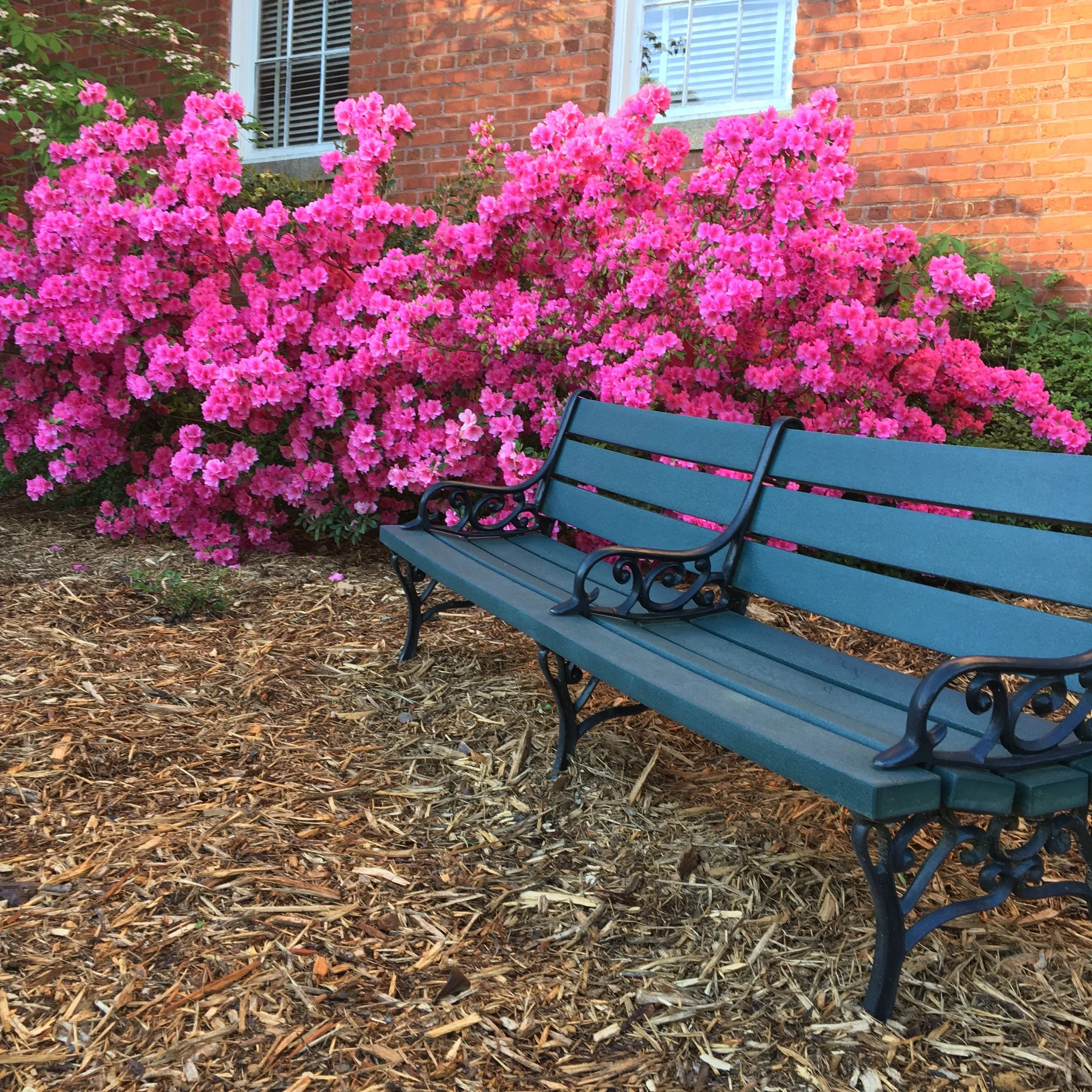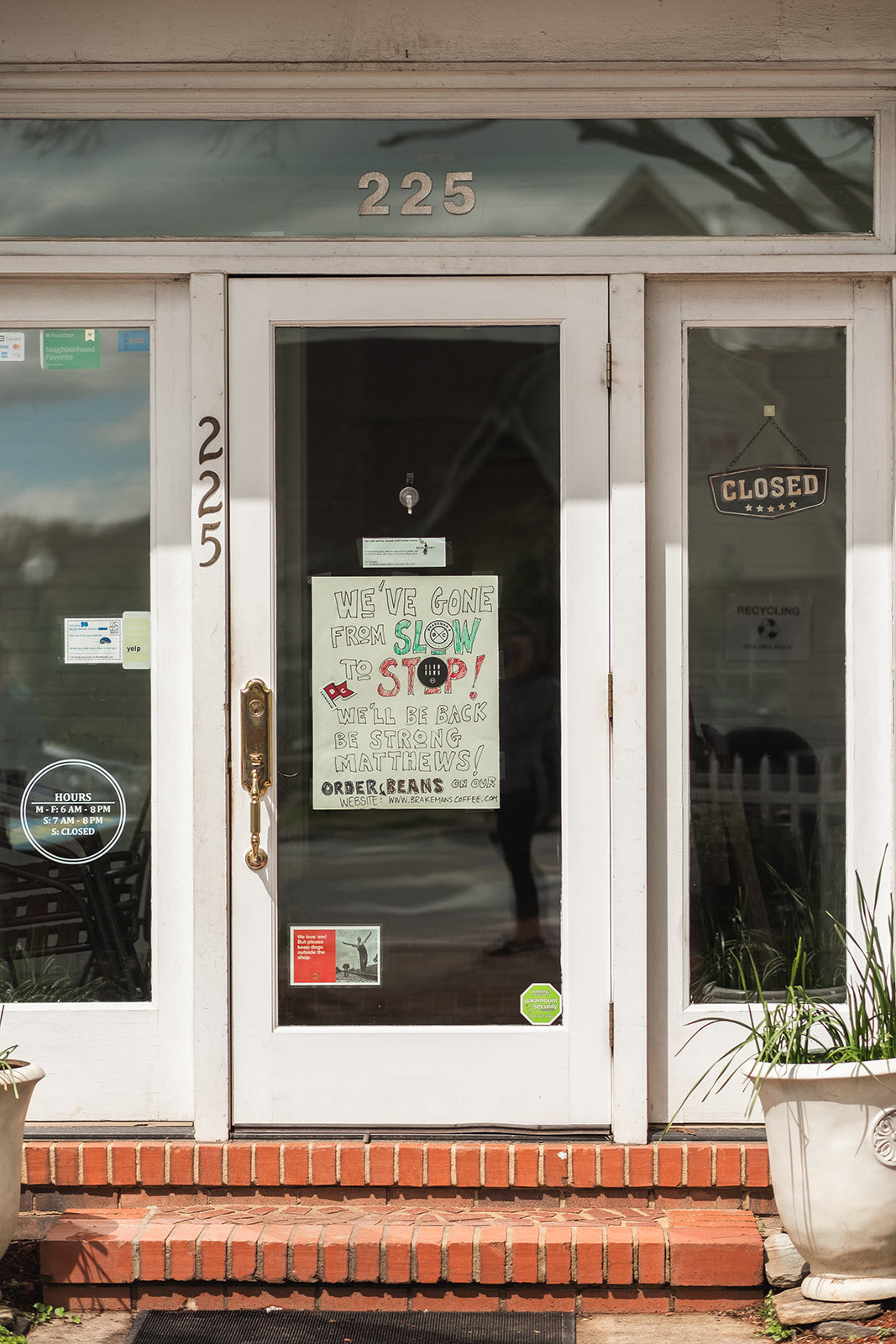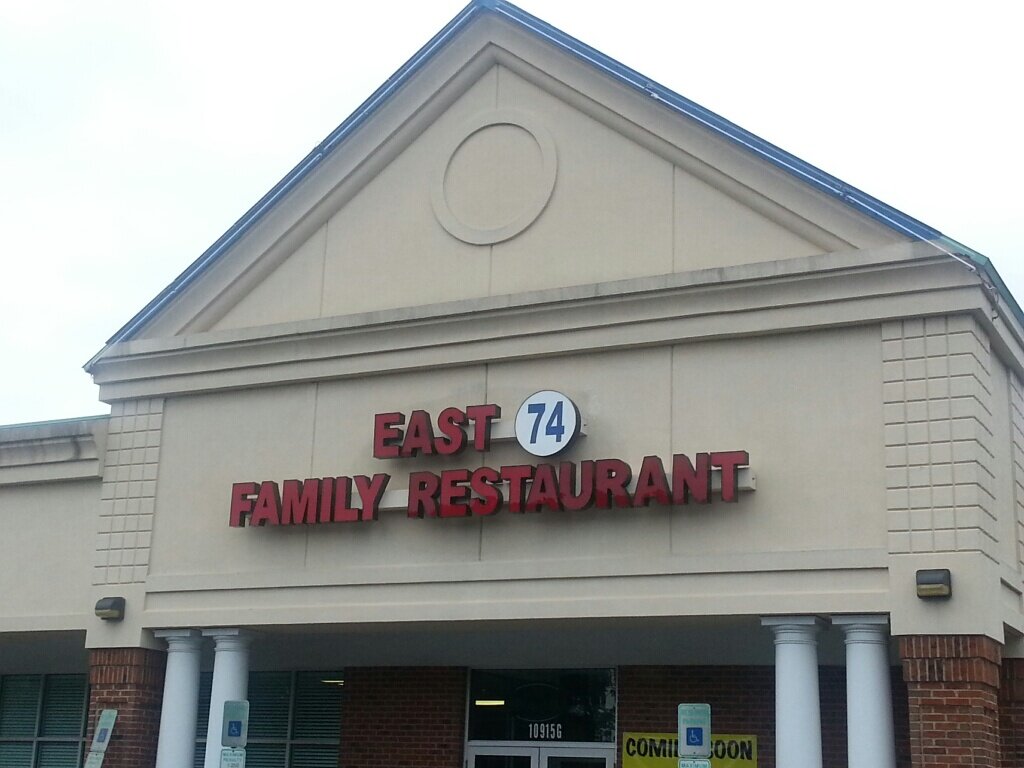News About Town: Now that Alta Planning and Design, the consultant for the Downtown Mobility Study, has started work, Alta is seeking insight. The Town has posted a Survey and a Map, two methods to better understand design needs from citizens’ vantage point. The Map is a visual method to provide input while the survey consists of a few quick questions; both ask about pedestrian, bicyclist, and transit needs in the downtown area.
Perhaps the perfect spot for a selfie? Where’s that bench?
News Around Town: With CMS schools closed on May 1, various Mecklenburg County Park and Rec centers have special day-long camps planned. Typically camps are priced between $10 and $25. There are no county rec centers in Matthews (Crews Road is Town-run), but perhaps there is a location near your place of work. Find the closest center and call to see what they have planned.
One Fun Thing: Join Habitat and Wildlife Keepers (HAWK) this Saturday (April 27) for an Earth Day Celebration at Squirrel Lake Park. The festivities run from 10 a.m. until 1 p.m. Plenty of vendors will have activities for the whole family, Coca Cola will have free rain barrels, and Ranger Rick will be standing by for photo ops. This one, without a doubt, tops the Crunchy Feely-Meter in all the best ways possible.













